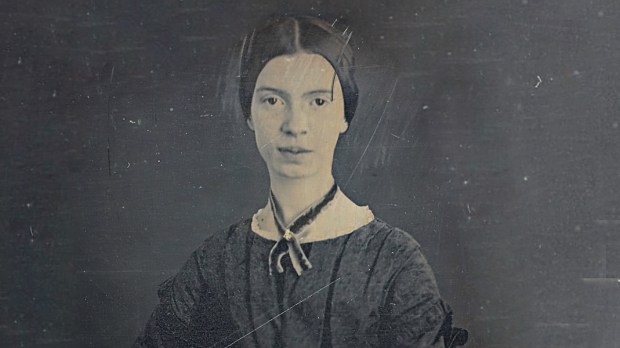It’s all I have to bring today- This, and my heart beside- This, and my heart, and all the fields- And all the meadows wide- Be sure you count—should I forget Someone the sum could tell- This, and my heart, and all the Bees Which in the Clover dwell. —Emily Dickinson
When I feel absurdly small, useless, and insignificant, I’ve been trying to remember this simple little piece, which Emily Dickinson didn’t even take the trouble to name. It holds within it an intensely Catholic and profoundly reassuring view of who we really are, and what our true place is in the world. Dickinson takes us by the hand and leads us through the process of discovering our own earthshaking value. Now, whenever I see bees in the clover, I remember who I really am.
“It’s all I have to bring today—” Emily Dickinson hasn’t make it clear what “it” means, whatever it is that she is bringing, but it’s clear she isn’t proud of it. She’s almost apologetic about the offering, as if she’s saying, “I know you expected more, but this is all I’ve got.” Whether it’s something she made, or whether she’s just talking about herself, she knows she hasn’t made much of a presentation. She’s almost embarrassed.
But then she changes her mind. It isn’t all she has, because she’s brought her heart, too. Now, the offering has real value, if not for itself, for the living heart that gives it meaning. It makes you think of a kindergartner presenting her mother with a painting—the painting isn’t worth much on its own merit, but the heart that went into it makes it priceless, to the one who loves the little artist.
Now she gets more confident. She has something to offer after all! The pace of the poem rushes ahead, as she realizes just how much she has really brought. Not just the initial offering, but her own heart, and so much more than even that. She’s brought the fields, all of them, and the wide meadows, too!
It’s as if she’s taken ownership of the world. She sees now that that just as much as her heart gives her actions value, she herself is what gives the world its value. No matter how great and beautiful, the world would be nothing without her in it
Afraid she’s getting ahead of herself, she stops short. “Be sure you count,” she says, with a wink and a sly grin. It’s her little joke. After all, she’s asking you to quantify what could never be counted. She’s joined her small offering with the richness of the whole Earth. Now, what she has to offer is too enormous to express with mere numbers. It’s become infinite.
If you live near fields and meadows, you know how small they make you feel. You’re just a speck compared to the expanse of solid earth below you, and the miles of sky above it all. But she doesn’t just want to talk about the hugeness of of the earth. In an instant, she has scaled the whole thing down to the level of the bees, buzzing importantly from clover to clover. It’s an almost comical image, especially compared to the fields and meadows.
She’s making a bold claim. She’s saying that she is the beating heart of the world, not just on the large scale, but down to its most meticulous details. Without her, and her offering, the world itself would have nothing to offer. She takes ownership of it, from the scurrying of the insects to the expanse of the sky, and claims to be the most valuable thing in it.
And, of course, she is quite right. The world was created by God, but mankind was created in God’s image. The world is lovely, but we are loved. So if you feel small, and embarrassed by what you have to bring the world, look at everything from the wideness of the meadows to the bees in the clover, and know that you are more important than all of it.
Follow Aleteia’s Book Nook on Facebook for more articles on poetry, literature and great reads!
Benedict XVI:
God brought the creation to completion in six days and on the seventh, the sabbath, he did not do anything, but rested: a day of freedom for all, a day of communion with God. Thus, with this image the Book of Genesis tells us that God’s first thought was to find a love that would correspond to his love. Then his second thought was to create a material world in which to place this love, these creatures who respond to him in freedom.

